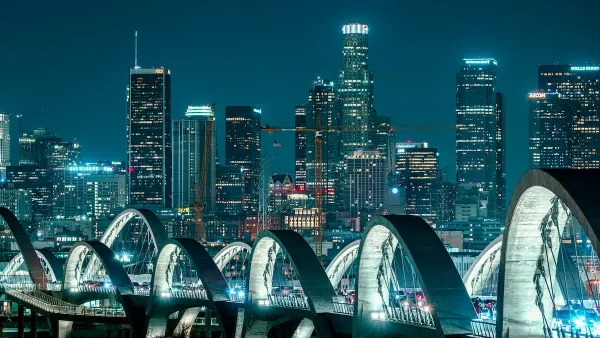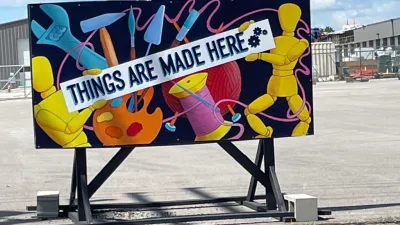Seven years after a celebrated public-private partnership, NoMa proves a smart growth success, write Rachel MacCleery and Jonathan Tarr.
When we reported on the completion of a new transit station in Washington, D.C.'s languishing North of Massachusetts neighborhood some seven-odd years ago, stakeholders already recognized its massive development potential. Just blocks north of Capitol Hill and the bustling Union Station Railway Hub, the neighborhood was dotted with empty warehouses and vacant lots at a time when the federal government was looking to move out of Downtown in search of lower rents. Now, the neighborhood is coming into its own.
But NoMa's bright future wasn't always so clear. Early development depended on the collaboration of federal and local decisionmakers, as well as private landowners. Urban Land Institute trustee James Curtis said the project required a "leap of faith" for all involved. "No one, I think, could have foreseen at the time what NoMa would become." According to MacCleery and Tarr, even the local transit authority "initially was not enthusiastic about the project."
With the help of a nonprofit corporation formed "to organize and leverage private investment," stakeholders raised $120 million to build the station, which was the critical first step in moving federal offices into the area. Now, five years after the formation of a local business improvement district, NoMa is home to 40,000 jobs and $7 billion in private investments.
"For a long time, no one was sure if anyone would live in NoMa's new buildings," said BID President Robin-Eve Jasper. "But now we know who is here, and it's at just the right time to think about things like parks and the public realm."
FULL STORY: NoMa: The Neighborhood That Transit Built

Planetizen Federal Action Tracker
A weekly monitor of how Trump’s orders and actions are impacting planners and planning in America.

Restaurant Patios Were a Pandemic Win — Why Were They so Hard to Keep?
Social distancing requirements and changes in travel patterns prompted cities to pilot new uses for street and sidewalk space. Then it got complicated.

Map: Where Senate Republicans Want to Sell Your Public Lands
For public land advocates, the Senate Republicans’ proposal to sell millions of acres of public land in the West is “the biggest fight of their careers.”

Maui's Vacation Rental Debate Turns Ugly
Verbal attacks, misinformation campaigns and fistfights plague a high-stakes debate to convert thousands of vacation rentals into long-term housing.

San Francisco Suspends Traffic Calming Amidst Record Deaths
Citing “a challenging fiscal landscape,” the city will cease the program on the heels of 42 traffic deaths, including 24 pedestrians.

California Homeless Arrests, Citations Spike After Ruling
An investigation reveals that anti-homeless actions increased up to 500% after Grants Pass v. Johnson — even in cities claiming no policy change.
Urban Design for Planners 1: Software Tools
This six-course series explores essential urban design concepts using open source software and equips planners with the tools they need to participate fully in the urban design process.
Planning for Universal Design
Learn the tools for implementing Universal Design in planning regulations.
Heyer Gruel & Associates PA
JM Goldson LLC
Custer County Colorado
City of Camden Redevelopment Agency
City of Astoria
Transportation Research & Education Center (TREC) at Portland State University
Camden Redevelopment Agency
City of Claremont
Municipality of Princeton (NJ)





























